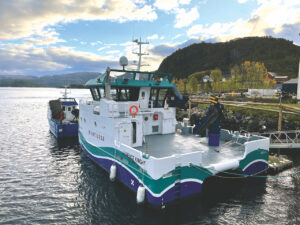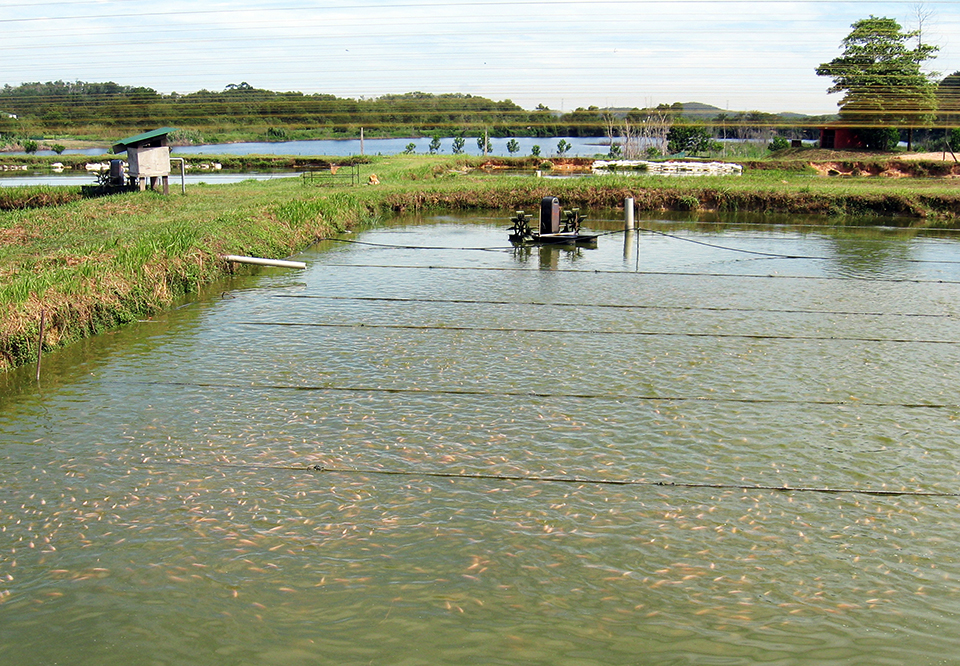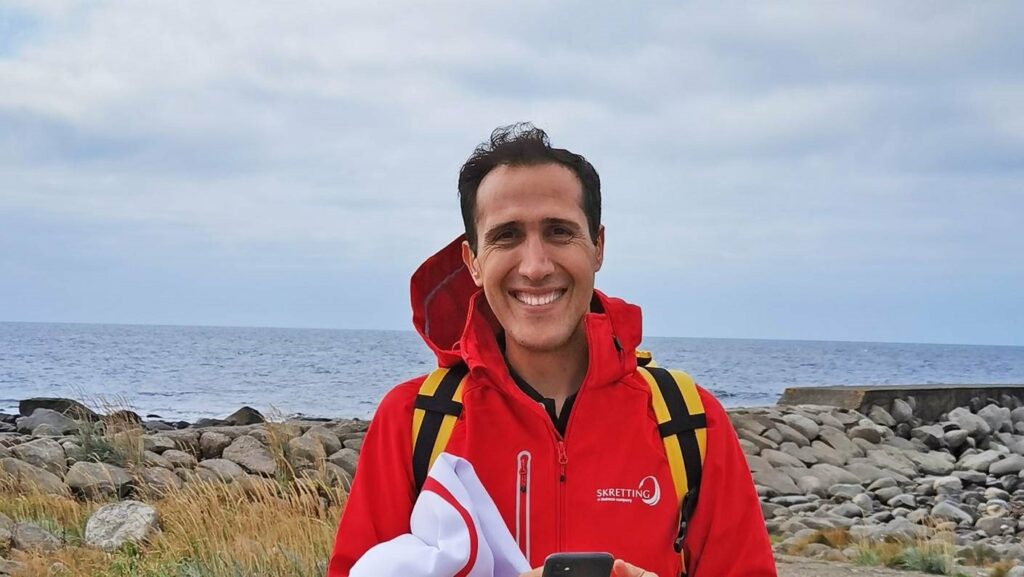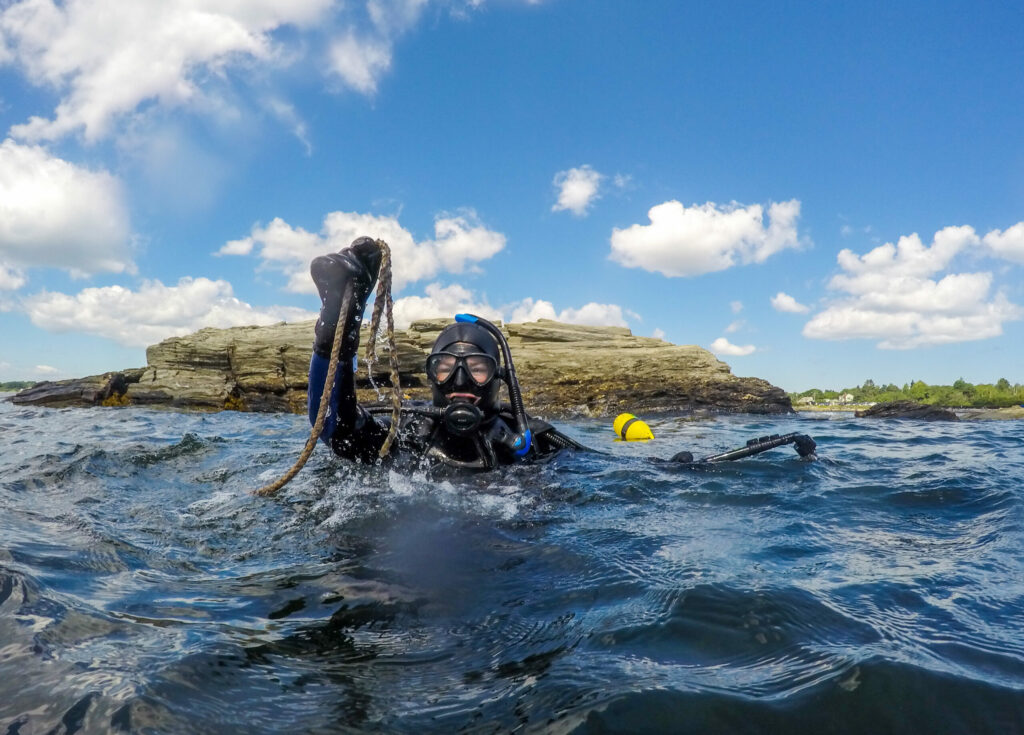Battery-powered boat could cut company’s fuel costs by up to 50 percent

Scottish Sea Farms, which produces Atlantic salmon across mainland Scotland, Shetland and Orkney, has added a hybrid power workboat to its fleet of 17 vessels. The boat, which runs primarily on its batteries, can perform on-farm duties for five to six hours without recharging its batteries from either of the two generators on board. It’s the first vessel of its kind to be used in Scotland’s aquaculture sector, marking a “massive milestone” in both carbon reduction and cost savings.
“As a business, Inverlussa always aims to stay ahead of the game, be at the forefront of technology and actively invest in innovative solutions to offer our customers,” said Ben Wilson, managing director at Inverlussa. “There are similar hybrid vessels in Norway, and we thought it was the right time to introduce this technology to our Scottish customers, who are committed to lowering their environmental impact.”
Inverlussa Marine Services, a Mull-based boat operator, commissioned the 15-meter catamaran, Laurence Knight, from Norwegian yard Moen Marin. It will go into service this month on Scotland’s west coast.
“We have been using hybrid company vehicles since 2017 and now have three cars with more planned in the coming months,” said Wilson. “The addition of the hybrid vessel shows the direction we are heading in and our aim to be the most sustainable and responsible workboat operator in the market.”
With a total capacity of 244 kW hours, the batteries can drive cranes and all other energy requirements, including steaming back and forth from the shore. As soon they need recharging, the generators kick in automatically, and they can also be recharged from shore power.
With this vessel, generators do not need to be running when the boat is tied up alongside a salmon pen, assisting with a harvest or a net installation. Further, with no demand for an overnight generator, the noise will be reduced as well as diesel fuel consumption and the vessel’s carbon footprint.
A hybrid power trial at the company’s Spelve farm on Mull has saved approximately 83 tonnes (91 tons) of CO2 a year at its peak, demonstrating the value of such technology. But Innes Weir, Scottish Sea Farms Regional Director for the Mainland, said the new workboat goes a step further.
“The system we have at Spelve is to pick up anything other than feeding fish. As soon as we need to feed, we turn the generator on,” said Weir. “If we can operate a hybrid system that is completely electric, with generators just used for recharging batteries, we can roll it out across our estate, on the barges and other energy-rich areas we want to hybridize.”
The batteries have a typical life expectancy of 16 years and are also 100 percent recyclable. As an eco-friendly addition, the water used to cool the batteries is recycled to help heat the four cabins. With the new boat, data can also be collected from the batteries for analysis back onshore. The technology allows Scottish Sea Farms to manage every individual cell within the battery pack to maximize its efficiency.
For Scottish Sea Farms, the new vessel will help achieve CO2 savings of around 234 tonnes (257 tons) annually, which is the equivalent of removing 51 passenger vehicles from the road each year. It has the potential to cut fuel costs by up to 50 percent.
“I think this type of vessel is going to become more common in the Scottish salmon farming sector as producers look for greener solutions,” said Wilson. “It’s an exciting project and we’re looking forward to getting it going.”
Follow the Advocate on Twitter @GSA_Advocate
Now that you've reached the end of the article ...
… please consider supporting GSA’s mission to advance responsible seafood practices through education, advocacy and third-party assurances. The Advocate aims to document the evolution of responsible seafood practices and share the expansive knowledge of our vast network of contributors.
By becoming a Global Seafood Alliance member, you’re ensuring that all of the pre-competitive work we do through member benefits, resources and events can continue. Individual membership costs just $50 a year.
Not a GSA member? Join us.
Author
-
Responsible Seafood Advocate
[103,114,111,46,100,111,111,102,97,101,115,108,97,98,111,108,103,64,114,111,116,105,100,101]
Tagged With
Related Posts

Responsibility
Assessing the carbon footprint of aquaculture
A carbon footprint is an estimate of the total carbon emissions resulting from the production, use and disposal of a product or service. Carbon footprints for aquaculture products result mainly from the use of manufactured feed and mechanical aeration.

Responsibility
‘Do more and do better’ – Sustainability manager discusses Skretting’s ambitious agenda
Aquafeed giant Skretting recently appointed Jorge Diaz as its sustainability manager to advance its ambitious sustainability agenda.

Responsibility
Joint initiative to replenish oyster population in Baltimore Harbor
Using a solar-powered automated aquaculture system, a collaboration aims to replenish the native oyster population in the Baltimore Harbor.

Fisheries
The hidden cost of ghost gear lost by fishing and aquaculture
Abandoned, lost or discarded fishing gear can inflict damage on marine life and the ocean, but what's the economic cost of ghost gear?



